
Find Help
More Items From Ergsy search
-

What qualifies as a direct descendant for RNRB purposes?
Relevance: 100%
-
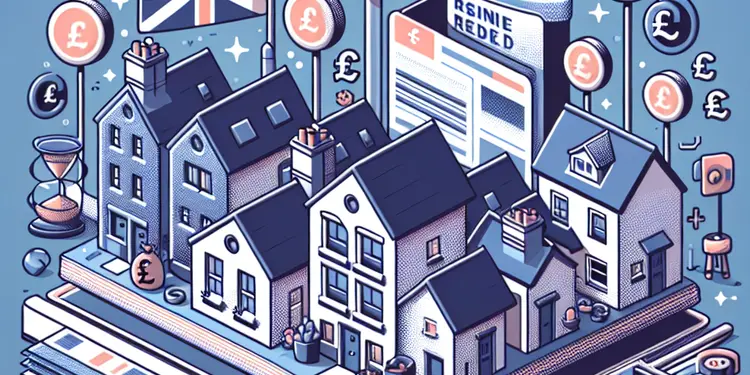
What is the residence nil rate band?
Relevance: 41%
-
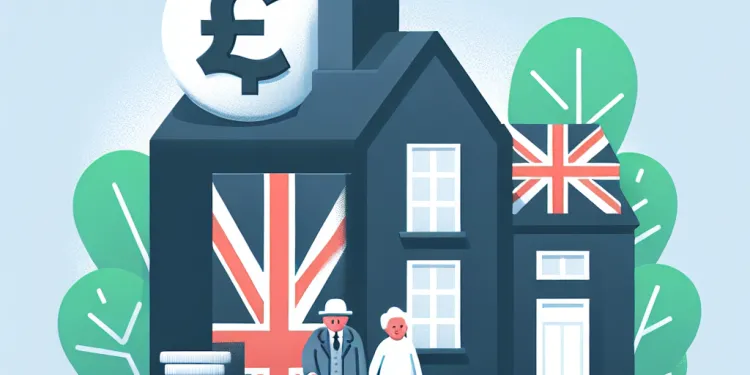
What is inheritance tax in the UK?
Relevance: 26%
-

Can I set up direct debits with Monzo or Revolut?
Relevance: 21%
-

Can I negotiate a resolution directly with the dealer?
Relevance: 20%
-

Will students receive the payment directly into their bank accounts?
Relevance: 20%
-

What is direct cremation and how much does it cost in the UK?
Relevance: 20%
-

Can I receive my tax refund directly into my bank account?
Relevance: 20%
-

Can concussions occur without a direct blow to the head?
Relevance: 19%
-

Does Ofgem handle compensation claims directly?
Relevance: 18%
-

Can you ingest cannabis extract directly?
Relevance: 18%
-
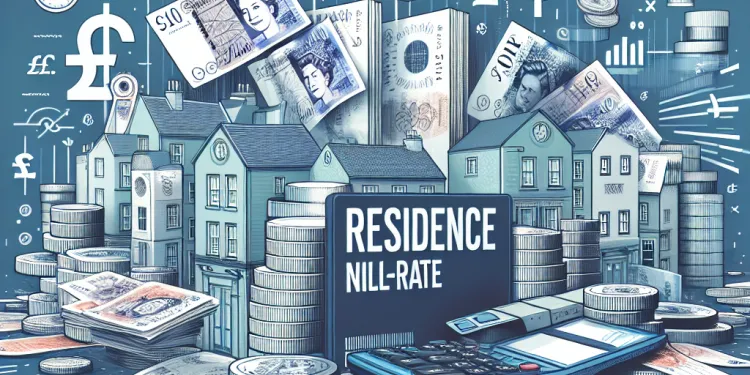
What is the residence nil-rate band?
Relevance: 18%
-

Can I apply for the Plug-in Car Grant directly?
Relevance: 18%
-
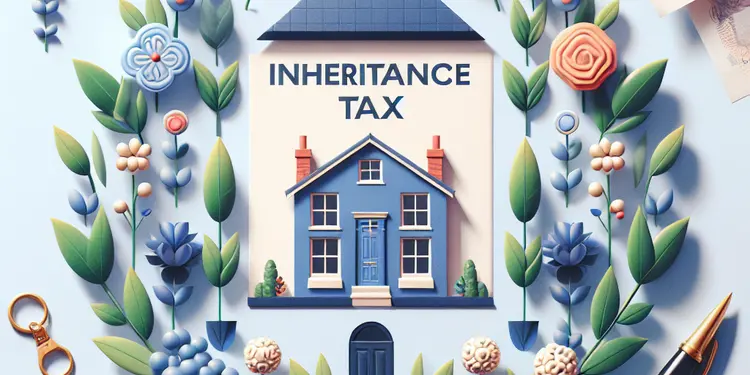
What is the nil rate band in Inheritance Tax?
Relevance: 18%
-

Can I contact Ofgem directly for a compensation dispute with Octopus Energy?
Relevance: 17%
-

Are there tax-free thresholds for inheritance tax?
Relevance: 16%
-

Are there any exemptions or reliefs available for Inheritance Tax?
Relevance: 15%
-
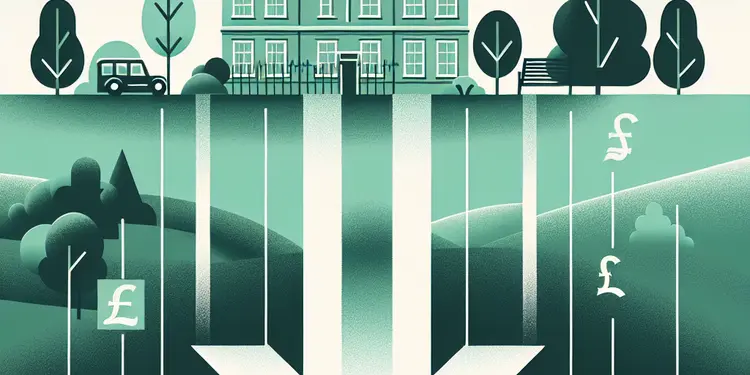
How can one reduce the inheritance tax burden?
Relevance: 14%
-

Is it possible to reduce the Inheritance Tax bill?
Relevance: 14%
-

How is the Inheritance Tax bill calculated?
Relevance: 14%
-

Can I get pension advice directly from pension fund providers?
Relevance: 14%
-
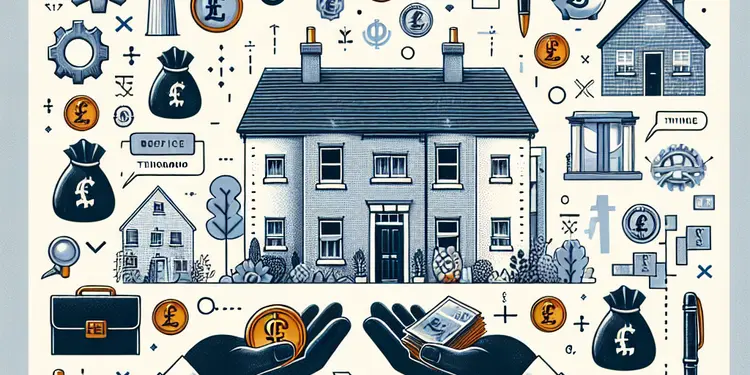
Do I pay Inheritance Tax on a property I inherit?
Relevance: 13%
-

How can I plan efficiently to mitigate inheritance tax?
Relevance: 13%
-

Is there any inheritance tax exemption for spouses or civil partners?
Relevance: 13%
-

Wills, Probate and Tax Planning in the UK
Relevance: 12%
-

Does inheritance tax vary by state or region?
Relevance: 11%
-

Are there deductions available for inheritance tax?
Relevance: 9%
-

Are there any exemptions from inheritance tax?
Relevance: 9%
-

How is Inheritance Tax (IHT) dealt with after death?
Relevance: 9%
-

Who is at risk for testicular cancer?
Relevance: 8%
-

Prolapse Management
Relevance: 7%
-

Origin of Judaism - A Brief History | 5 MINUTES
Relevance: 7%
-

Incontinence and Prolapse - Physiotherapy Advice
Relevance: 7%
-
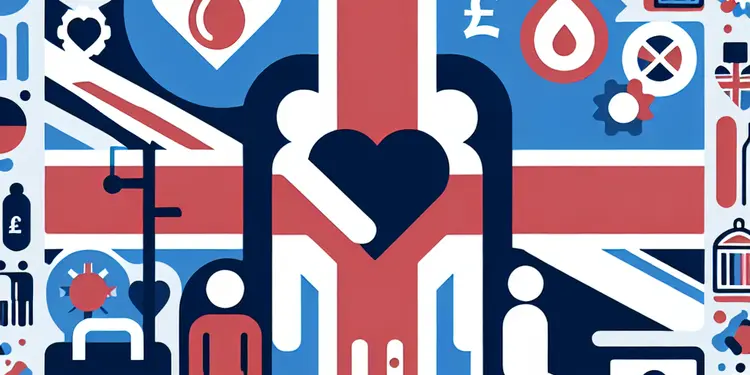
Can you donate blood specifically for a friend or family member?
Relevance: 7%
-

What is inheritance tax in the UK?
Relevance: 6%
-

Do all beneficiaries pay the same inheritance tax rate?
Relevance: 6%
-

What taxes need to be paid from the deceased’s estate?
Relevance: 6%
-

What taxes in the UK target wealth?
Relevance: 6%
-

What is the current Inheritance Tax threshold?
Relevance: 6%
-

What are the different types of funerals available?
Relevance: 5%
Understanding the Residence Nil Rate Band (RNRB)
The Residence Nil Rate Band (RNRB) is an additional inheritance tax (IHT) allowance in the United Kingdom that applies when a family home is passed on to a direct descendant. Introduced in April 2017, the RNRB was designed to help families preserve more of their wealth for future generations by increasing the threshold over which IHT is payable. One critical aspect that affects eligibility for the RNRB is the definition of a "direct descendant."
What is a Direct Descendant?
For RNRB purposes, a direct descendant includes a broad range of individuals who are directly related to the deceased. The legal definition encompasses not just children and grandchildren, but also a range of other family connections. Here's a breakdown of who qualifies as a direct descendant:
Children and their Lineage
Children of the deceased, whether biological or legally adopted, are considered direct descendants. In addition, stepchildren are included in this definition. This means that if an individual has married someone with children from a previous relationship, those stepchildren are regarded as direct descendants. Furthermore, foster children are also recognized under this category.
Grandchildren and Further Generations
The definition of direct descendants extends to grandchildren and great-grandchildren. This ensures that the allowance is applicable not just to the first generation but to subsequent generations as well, supporting the notion of passing down wealth through family lines. Any descendant in a direct line from the children onwards is included.
Other Relatives who Qualify
The RNRB rules are inclusive of the children and grandchildren mentioned above. Still, they specifically exclude other relatives like nieces, nephews, siblings, or more distant family members from being recognized as direct descendants. These exclusions mean that wealth intended for such individuals could potentially be subject to higher taxation if falling outside other exemptions or allowances.
Implications for Estate Planning
Understanding the definition of a direct descendant is crucial for estate planning purposes, as it impacts the applicability of the RNRB to an estate. Failing to account for who qualifies as a direct descendant can lead to unintended tax liabilities. For those with blended families or complex family structures, it's important to review wills and inheritance plans to ensure they align with the rules governing RNRB.
Conclusion
The Residence Nil Rate Band provides a valuable increase to the estate tax threshold but comes with specific requirements around who is considered a direct descendant. By ensuring that the property in question is left to individuals who meet this definition, families can make the most of estate planning tools to reduce potential inheritance tax burdens. For those unsure of their circumstances, consulting with a financial advisor or legal professional is recommended to navigate the complexities of IHT and RNRB.
Understanding Residence Nil Rate Band (RNRB)
Residence Nil Rate Band (RNRB) is a special rule in the UK. It helps people pass on their family home without paying extra taxes. This rule started in April 2017. It makes it cheaper to give your home to your children or grandchildren when you die. But, you need to know who counts as a "direct descendant" to use this rule.
Who is a Direct Descendant?
A direct descendant is someone directly related to the person who has died. This includes more than just your children and grandchildren. Here’s who counts:
Children and Their Families
Your own children, whether you gave birth to them or adopted them, count as direct descendants. Stepchildren also count. So, if you marry someone who already has kids, those kids are your stepchildren and count too. Even children you have cared for as a foster parent can count.
Grandchildren and More
Grandchildren and even great-grandchildren count as direct descendants. This means your wealth can help your family for many generations.
Who Does Not Count
Some relatives do not count as direct descendants. Nieces, nephews, brothers, and sisters are not included in this rule. If you want to leave them something, you might have to pay more taxes.
Why This Matters for Planning
Knowing who is a direct descendant is important when planning your estate. If you make a mistake, your family might have to pay more tax than you expect. If your family is complex, like having many stepchildren, check your plans. Make sure they follow the rules.
Conclusion
The Residence Nil Rate Band helps save on taxes when you pass your home to the right people. They must be direct descendants. If you are not sure, talk to a financial advisor or a lawyer. They can help you understand the rules.
Frequently Asked Questions
What is RNRB?
RNRB stands for Residence Nil Rate Band, a tax allowance available to reduce the amount of inheritance tax paid on a property.
Who qualifies as a direct descendant for RNRB purposes?
Direct descendants include children, grandchildren, stepchildren, adopted children, foster children, and any of their lineal descendants.
Do stepchildren qualify as direct descendants for RNRB?
Yes, stepchildren are considered direct descendants for the purposes of RNRB.
Are foster children considered direct descendants for RNRB?
Yes, foster children qualify as direct descendants under RNRB rules.
Do adopted children qualify as direct descendants?
Yes, adopted children are considered direct descendants for RNRB.
Can grandchildren use the RNRB?
Yes, grandchildren are eligible as direct descendants for RNRB.
Is there an age limit for children to qualify as direct descendants?
No, there is no age limit for children to be considered direct descendants for RNRB.
Can great-grandchildren qualify for RNRB?
Yes, great-grandchildren are considered direct descendants.
Do nieces and nephews qualify as direct descendants for RNRB?
No, nieces and nephews are not considered direct descendants for RNRB purposes.
Does RNRB apply to fostered children?
Yes, fostered children qualify as direct descendants for RNRB.
Are common law stepchildren eligible for RNRB?
Yes, common law stepchildren are eligible as direct descendants for RNRB.
Do descendants by marriage qualify for RNRB?
Yes, descendants who are stepchildren qualify under RNRB.
If my children live abroad, do they still qualify as direct descendants?
Yes, children who live abroad still qualify as direct descendants for RNRB.
Is a foster child who is no longer under care still considered a direct descendant?
Yes, they are considered direct descendants for RNRB even if they are no longer under foster care.
Do children of a civil partner qualify as direct descendants?
Yes, they qualify as stepchildren and thus as direct descendants for RNRB.
Does the term 'direct descendant' include biological children only?
No, it includes biological children, adopted children, stepchildren, and foster children.
Is there a maximum number of descendants that can qualify for RNRB?
No, there isn't a maximum number; all qualifying descendants can benefit from RNRB.
Do unborn grandchildren qualify as direct descendants for RNRB?
Unborn grandchildren are not explicitly mentioned; generally, they would need to be born to qualify.
Do half-siblings qualify as direct descendants?
No, half-siblings do not qualify as direct descendants for RNRB purposes.
Can a will specify non-direct descendants to receive RNRB benefits?
The RNRB is linked to the transfer of a property to direct descendants; non-direct descendants do not qualify.
What is RNRB?
RNRB means Residence Nil Rate Band. It helps when people leave their home to their family after they pass away. It can mean paying less tax. You could use a tool like a family member or a friend to help you understand more.
RNRB means Residence Nil Rate Band. It's a way to pay less inheritance tax on a home.
Who is a direct descendant for RNRB?
A direct descendant is someone in your family like your child or grandchild. It also means stepchildren, adopted children, foster children, and their children too.
Can stepchildren get the RNRB benefit?
Yes, stepchildren are counted as family for RNRB.
Are foster children part of the family for the RNRB rule?
This question is asking if foster children are seen as close family when dealing with the RNRB rule. RNRB is about inheritance tax. It's important to know who is in your family for this rule.
If you need help understanding this topic, you can:
- Ask a trusted adult to explain it.
- Use simple language guides about family and taxes.
- Look for videos or easy-to-read books on family rules and money.
Yes, foster children count as family for RNRB rules.
Do adopted children count as direct descendants?
Yes, adopted children are part of the family. They are just like birth children. If you need help reading, try using a ruler or your finger to follow the words. Reading out loud can also help.
Yes, adopted children are counted as direct family for RNRB.
Can grandchildren use the RNRB?
Can grandchildren get help from the RNRB when someone dies? Let's find out together!
The RNRB is a rule that helps people pay less tax when they leave their home to their family, like their children or grandchildren, after they pass away. It makes things easier for the family.
If you need help reading or understanding, you can:
- Ask someone you trust to explain it to you.
- Use a reading tool on the computer to listen to the words.
- Highlight or underline important words.
Remember, it's okay to ask for help!
Yes, grandchildren can get RNRB because they are direct descendants.
How old can a child be to count as a direct descendant?
This means: What is the oldest a child can be to still be called a direct descendant?
Tip: Ask a grown-up if you need help. Use a dictionary for words you don’t know. You can also use reading apps or tools to read out loud.
No, there is no age limit for children to be counted as direct descendants for RNRB.
Can great-grandchildren get RNRB?
Yes, great-grandchildren are part of your family.
They come from your children and grandchildren.
If you need help understanding this, you can:
- Ask a family member to explain.
- Draw a family tree to see how everyone is connected.
Can nieces and nephews get RNRB?
No, nieces and nephews do not count as direct family for RNRB rules.
Does RNRB apply to fostered children?
RNRB is a special rule that might help when someone dies and leaves their home to their family.
Foster children are children that you take care of but did not give birth to.
If you die and leave your home to your foster children, the rule might not help. It is best to ask a money expert or use easy online guides to learn more.
Yes, foster children count as part of the family for RNRB.
Can stepchildren in common law families get RNRB?
Stepchildren in families where the parents aren’t legally married might wonder if they can get something called RNRB when a parent dies. RNRB helps people pass on their home to family without paying extra money called “inheritance tax.”
To understand this, you can ask a grown-up you trust or talk to an expert who knows about inheritance tax. They can help explain if stepchildren in your family can get RNRB. Reading guides or using picture cards can also help make this easier to understand.
Yes, stepchildren are allowed as direct family members for RNRB.
Do family members who marry in get RNRB?
Yes, stepchildren can get RNRB too.
Do my children count as direct descendants if they live in another country?
Yes, children who live in another country still count as direct descendants for RNRB.
Is a foster child who is not being looked after anymore still part of the family?
A foster child is a child who lives with a family that is not their birth family. Even if a foster child does not live with that family anymore, some people might still think of them as part of the family.
Here are some helpful ways to better understand this:
- Ask someone in the family. They can tell you if they still think the foster child is part of the family.
- Use picture books or stories about different families. They can show how different families work and who is part of them.
- Talk to a teacher or helper. They can explain what a foster child is and how families can be different.
Yes, they are still thought of as direct descendants for RNRB, even if they are not in foster care anymore.
Can the children of someone in a civil partnership be called direct descendants?
If you are in a civil partnership, can your partner's children be considered your direct descendants? This means, are they seen like your own children by law?
For help with reading and understanding, try using a dictionary for hard words or ask someone you trust to explain it to you.
Yes, they count as stepchildren. This means they are treated like your own children for RNRB.
Does 'direct descendant' mean only real children?
This question asks if 'direct descendant' means only children that are born to someone. Let's make it easier to understand:
'Direct descendant' - This means the people in your family who come after you, like your children, grandchildren, etc.
'Biological children' - These are children born from their parents.
So, the question is: Are 'direct descendants' just the children who are born to a person?
Tools to help:
- Ask someone to explain the words you don't know.
- Look at pictures or charts of families to see how people are related.
- Use apps or websites that can read words out loud to you.
No, it counts all kinds of children. This means children born to you, children you adopted, children from a partner's previous relationship, and children you care for who come from another family.
How many family members can get RNRB help?
No, there is no maximum number. All family members who qualify can get RNRB help.
Can Babies Not Born Yet Get RNRB?
RNRB is a special money rule for family members. It helps with tax when someone dies.
This question asks if babies who are not born yet can be part of this rule. They are called "unborn grandchildren."
If you want help understanding this, you can:
- Ask someone you trust to explain it.
- Use simple words when talking about it.
- Write notes to keep track of important points.
Grandchildren who are not born yet are not usually included. They usually need to be born to count.
Can half-brothers and half-sisters be called direct descendants?
No, half-brothers and half-sisters do not count as direct children for RNRB rules.
Can a will give RNRB benefits to family members who are not children or grandchildren?
The RNRB is a rule about passing on property to family. Only your children or grandchildren can get it. Other family members can't.
Useful Links
This website offers general information and is not a substitute for professional advice.
Always seek guidance from qualified professionals.
If you have any medical concerns or need urgent help, contact a healthcare professional or emergency services immediately.
Some of this content was generated with AI assistance. We’ve done our best to keep it accurate, helpful, and human-friendly.
- Ergsy carfully checks the information in the videos we provide here.
- Videos shown by Youtube after a video has completed, have NOT been reviewed by ERGSY.
- To view, click the arrow in centre of video.
- Most of the videos you find here will have subtitles and/or closed captions available.
- You may need to turn these on, and choose your preferred language.
- Go to the video you'd like to watch.
- If closed captions (CC) are available, settings will be visible on the bottom right of the video player.
- To turn on Captions, click settings .
- To turn off Captions, click settings again.
More Items From Ergsy search
-

What qualifies as a direct descendant for RNRB purposes?
Relevance: 100%
-

What is the residence nil rate band?
Relevance: 41%
-

What is inheritance tax in the UK?
Relevance: 26%
-

Can I set up direct debits with Monzo or Revolut?
Relevance: 21%
-

Can I negotiate a resolution directly with the dealer?
Relevance: 20%
-

Will students receive the payment directly into their bank accounts?
Relevance: 20%
-

What is direct cremation and how much does it cost in the UK?
Relevance: 20%
-

Can I receive my tax refund directly into my bank account?
Relevance: 20%
-

Can concussions occur without a direct blow to the head?
Relevance: 19%
-

Does Ofgem handle compensation claims directly?
Relevance: 18%
-

Can you ingest cannabis extract directly?
Relevance: 18%
-

What is the residence nil-rate band?
Relevance: 18%
-

Can I apply for the Plug-in Car Grant directly?
Relevance: 18%
-

What is the nil rate band in Inheritance Tax?
Relevance: 18%
-

Can I contact Ofgem directly for a compensation dispute with Octopus Energy?
Relevance: 17%
-

Are there tax-free thresholds for inheritance tax?
Relevance: 16%
-

Are there any exemptions or reliefs available for Inheritance Tax?
Relevance: 15%
-

How can one reduce the inheritance tax burden?
Relevance: 14%
-

Is it possible to reduce the Inheritance Tax bill?
Relevance: 14%
-

How is the Inheritance Tax bill calculated?
Relevance: 14%
-

Can I get pension advice directly from pension fund providers?
Relevance: 14%
-

Do I pay Inheritance Tax on a property I inherit?
Relevance: 13%
-

How can I plan efficiently to mitigate inheritance tax?
Relevance: 13%
-

Is there any inheritance tax exemption for spouses or civil partners?
Relevance: 13%
-

Wills, Probate and Tax Planning in the UK
Relevance: 12%
-

Does inheritance tax vary by state or region?
Relevance: 11%
-

Are there deductions available for inheritance tax?
Relevance: 9%
-

Are there any exemptions from inheritance tax?
Relevance: 9%
-

How is Inheritance Tax (IHT) dealt with after death?
Relevance: 9%
-

Who is at risk for testicular cancer?
Relevance: 8%
-

Prolapse Management
Relevance: 7%
-

Origin of Judaism - A Brief History | 5 MINUTES
Relevance: 7%
-

Incontinence and Prolapse - Physiotherapy Advice
Relevance: 7%
-

Can you donate blood specifically for a friend or family member?
Relevance: 7%
-

What is inheritance tax in the UK?
Relevance: 6%
-

Do all beneficiaries pay the same inheritance tax rate?
Relevance: 6%
-

What taxes need to be paid from the deceased’s estate?
Relevance: 6%
-

What taxes in the UK target wealth?
Relevance: 6%
-

What is the current Inheritance Tax threshold?
Relevance: 6%
-

What are the different types of funerals available?
Relevance: 5%


